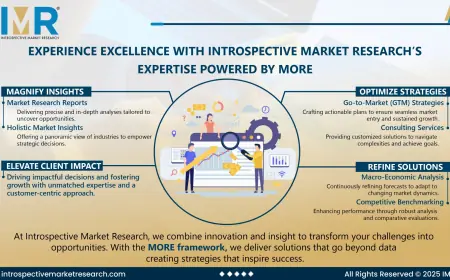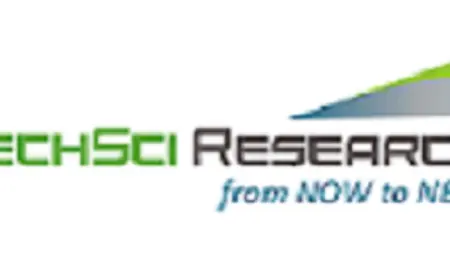Smart Contracts in Supply Chain Finance: Automating Payments and Audits
Explore how smart contracts are transforming supply chain finance by automating payments, audits, and compliance. Learn how smart contract development companies deliver secure, scalable solutions for efficient, transparent, and real-time financial management in global supply chains.
The global supply chain landscape has become increasingly complex, with businesses managing multi-tiered networks of suppliers, manufacturers, logistics providers, and financial institutions. Ensuring timely payments, compliance with contractual obligations, and transparent auditing has traditionally required extensive manual processes, creating inefficiencies and vulnerabilities. In 2025, smart contracts are emerging as a transformative solution for supply chain finance, automating payment workflows, audit trails, and compliance management. Businesses looking to leverage this technology are partnering with smart contract development companies and utilizing professional smart contract development services to create secure, reliable, and scalable blockchain-based solutions.
Understanding Supply Chain Finance
Supply chain finance (SCF) is a set of technology-driven solutions that optimize cash flow for suppliers and buyers by providing early payment options, financing, and efficient invoice management. SCF often involves multiple intermediaries, including banks, factoring companies, and logistics providers, each adding layers of complexity and potential delays.
The integration of blockchain and smart contracts streamlines these processes by automating contractual obligations and ensuring transparent, tamper-proof records. Smart contracts are programmable, self-executing agreements that trigger predefined actions, such as releasing payments upon delivery confirmation or generating audit-ready transaction records automatically.
How Smart Contracts Transform Supply Chain Finance
Next-generation smart contracts are reshaping SCF by embedding intelligence, transparency, and automation into the payment ecosystem.
Automated Payment Execution
Smart contracts can automatically execute payments when predefined conditions are met. For example, once a shipment is delivered and verified, the contract triggers immediate settlement to the supplier. This reduces delays associated with manual invoice approvals and bank processing times, enhancing cash flow and supplier satisfaction.
Real-Time Auditing and Compliance
Every transaction on a blockchain is immutable and time-stamped, creating a verifiable audit trail. Smart contracts record payment flows, contractual compliance, and delivery confirmations in real time. Auditors can access accurate, up-to-date information, reducing the risk of errors, fraud, or misreporting.
Conditional Financing
Smart contracts can manage conditional financing arrangements, releasing funds based on verified performance metrics or milestones. This capability ensures that financing is linked to actual outcomes, reducing credit risk and improving financial discipline across the supply chain.
Transparency Across Stakeholders
By leveraging blockchain, smart contracts provide all authorized participants with a single source of truth. Buyers, suppliers, financiers, and regulators can view transaction histories, delivery status, and payment details without relying on separate reconciliations.
Technical Architecture of Supply Chain Finance Smart Contracts
Implementing smart contracts in SCF requires a multi-layered architecture that integrates blockchain, contract logic, external data sources, and secure identity verification.
Blockchain Layer
Choosing the right blockchain network is critical. Permissioned networks like Hyperledger Fabric or Corda are often preferred for supply chain finance due to their privacy features, controlled access, and low transaction costs. Public blockchains can also be used when transparency and cross-organization interoperability are priorities.
Smart Contract Layer
The core functionality of SCF smart contracts includes invoice verification, payment execution, milestone tracking, and dispute resolution. These contracts are typically written in Solidity for Ethereum-based networks or chain-specific languages for other blockchains.
Oracles and External Data Feeds
Oracles enable smart contracts to interact with external data sources, such as shipment tracking systems, ERP platforms, or financial market feeds. By securely bridging on-chain and off-chain data, oracles ensure that contract execution is based on accurate real-world events.
Security and Auditability
Given the financial stakes, robust security measures are essential. Smart contracts undergo thorough testing, formal verification, and external audits to prevent vulnerabilities such as reentrancy attacks, logic errors, or unauthorized access.
Integration with Financial Systems
Smart contracts can integrate with traditional banking infrastructure, payment gateways, and ERP systems to ensure seamless settlement and reporting. APIs and middleware are used to connect blockchain networks with enterprise systems, enabling automation without disrupting existing workflows.
Benefits for Businesses
Faster Payments and Improved Cash Flow
Automation accelerates payment cycles, reducing delays caused by manual approvals and intermediary processing. Suppliers receive funds promptly, improving liquidity and operational efficiency.
Reduced Operational Costs
By eliminating manual reconciliation, paperwork, and intermediaries, smart contracts lower administrative overhead and reduce the risk of errors and disputes.
Enhanced Risk Management
Conditional payment execution and real-time auditing reduce credit risk, fraud, and compliance violations. Businesses gain greater confidence in financial flows across complex supply chains.
Transparent and Immutable Records
Blockchain ensures that all transactions are permanent, traceable, and tamper-proof. This transparency simplifies auditing, compliance reporting, and dispute resolution.
Scalability Across Global Networks
Smart contracts can manage multi-party supply chains across borders, enabling seamless payments, financing, and compliance tracking for international operations.
Use Cases in Supply Chain Finance
Invoice Financing
Suppliers can tokenize invoices on the blockchain, allowing financiers to provide early payment. Smart contracts automatically verify invoice validity and release funds, reducing delays and mitigating payment risk.
Trade Finance
Smart contracts facilitate international trade by automating letter-of-credit execution, verifying shipping documents, and releasing funds upon delivery confirmation. This reduces reliance on paper-based processes and manual bank approvals.
Supplier Payments
Buyers can automate recurring payments to multiple suppliers based on delivery confirmations, quality checks, and compliance verification. Smart contracts ensure timely settlement while maintaining accurate records.
Auditing and Compliance Reporting
Auditors can access immutable transaction histories directly from the blockchain. Smart contracts can generate reports for regulatory compliance, reducing the time and cost associated with traditional audits.
Dynamic Financing Solutions
Smart contracts enable dynamic financing models, such as conditional discounts, milestone-based funding, and pay-on-performance arrangements, creating more flexible and risk-managed supply chain finance options.
Challenges in Implementing Supply Chain Smart Contracts
Integration with Legacy Systems
Many organizations rely on traditional ERP, payment, and logistics systems. Integrating smart contracts with these platforms requires careful planning, APIs, and middleware to ensure seamless functionality.
Regulatory Compliance
Supply chain finance operates under complex regulatory frameworks, including anti-money laundering, tax reporting, and cross-border trade regulations. Smart contracts must be designed to meet these requirements without compromising automation.
Data Accuracy and Trust
Smart contracts rely on accurate data from external sources. Oracles must be secure and reliable to ensure that contract execution is based on trustworthy information.
Network Scalability and Costs
High transaction volumes can lead to congestion and increased fees on public blockchains. Choosing appropriate networks and layer-2 solutions is crucial for efficiency and cost-effectiveness.
Stakeholder Adoption
Widespread adoption of smart contract-based SCF requires education, trust-building, and incentivizing all participants to transition from traditional workflows to blockchain-enabled automation.
Role of Smart Contract Development Companies
Partnering with a professional smart contract development company ensures that supply chain finance solutions are secure, scalable, and compliant. These companies provide comprehensive smart contract development services, including:
-
Designing and coding smart contracts for automated payments, invoice verification, and compliance tracking.
-
Integrating oracles and external data feeds for real-time contract execution.
-
Conducting rigorous security audits and formal verification of smart contract logic.
-
Connecting blockchain systems with enterprise ERP and financial platforms.
-
Advising on regulatory compliance, industry best practices, and cross-border trade considerations.
Engaging experts allows organizations to focus on operational excellence while leveraging cutting-edge blockchain technology for financial automation.
Future Trends in Supply Chain Finance Smart Contracts
Cross-Border Payment Automation
Smart contracts will increasingly facilitate multi-currency and cross-border payments, reducing delays and currency conversion complexities in global supply chains.
AI-Driven Financial Insights
AI can analyze supply chain data to predict cash flow needs, detect anomalies, and optimize financing strategies. Smart contracts can integrate these insights to trigger automated financial actions.
Dynamic Compliance Automation
Next-generation contracts may include built-in compliance logic that automatically adheres to changing regulations, minimizing manual intervention and risk.
Integration with IoT and Sensor Data
IoT devices can provide real-time shipment tracking, quality verification, and environmental monitoring. Smart contracts can leverage this data to automate payments and penalties based on performance metrics.
Expansion of Decentralized Finance (DeFi) Solutions
DeFi protocols can be integrated with supply chain finance, enabling tokenized invoices, decentralized lending, and liquidity provision, further enhancing financial efficiency.
Conclusion
Smart contracts are revolutionizing supply chain finance by automating payments, audit trails, and compliance verification. By leveraging smart contract development company and specialized smart contract development services, businesses can deploy secure, scalable, and efficient blockchain-based solutions. Automation enhances cash flow, reduces operational costs, improves transparency, and mitigates financial risk across complex supply chains. As blockchain, AI, and IoT technologies evolve, supply chain finance will increasingly become real-time, data-driven, and globally interconnected, offering unprecedented efficiency and reliability for businesses worldwide.
FAQs
Q1. How do smart contracts automate supply chain payments?
Smart contracts automatically execute payments when predefined conditions, such as delivery confirmation or invoice validation, are met, reducing delays and manual intervention.
Q2. Can smart contracts improve auditing in supply chain finance?
Yes, they provide immutable, time-stamped records that auditors can access in real-time, simplifying compliance reporting and dispute resolution.
Q3. How are oracles used in supply chain smart contracts?
Oracles securely feed external data, such as shipment status or financial information, to smart contracts, ensuring accurate execution based on real-world events.
Q4. What role does a smart contract development company play?
They design, code, and audit smart contracts, integrate external data feeds, and ensure compliance and scalability for supply chain finance solutions.
Q5. Can smart contracts handle cross-border supply chain payments?
Yes, advanced smart contracts can manage multi-currency and cross-border transactions, automating settlement and reducing operational complexities.
What's Your Reaction?
 Like
0
Like
0
 Dislike
0
Dislike
0
 Love
0
Love
0
 Funny
0
Funny
0
 Angry
0
Angry
0
 Sad
0
Sad
0
 Wow
0
Wow
0























































